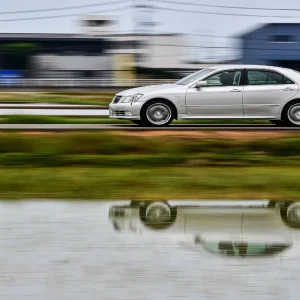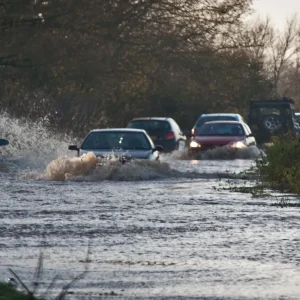
The UK business car fleet market is facing a new kind of disruption—one that comes not from technological advancements or regulatory changes, but from the natural world. Biodiversity loss and ecosystem collapse are increasingly recognised as critical issues with far-reaching implications. As these environmental challenges intensify, they present both risks and opportunities for fleet operators. This article explores how biodiversity loss and ecosystem collapse impact the UK business car fleet market, examining the direct and indirect effects on costs, operations, regulations, and the broader business landscape.
The Scale of Biodiversity Loss and Ecosystem Collapse
Understanding Biodiversity and Ecosystem Services
Biodiversity refers to the variety of life on Earth, including species diversity, genetic diversity, and ecosystem diversity. Ecosystem services are the benefits humans derive from ecosystems, such as clean water, air, food, and climate regulation. These services are integral to human well-being and economic activities.
The Current State of Biodiversity
The World Wide Fund for Nature (WWF) reports that global wildlife populations have declined by 68% since 1970. The UK is not immune to this trend; the State of Nature 2019 report indicates that 41% of UK species have experienced population declines since 1970, and 15% are threatened with extinction. The collapse of ecosystems and loss of biodiversity pose significant risks to industries reliant on these services.
Direct Impacts on the Business Car Fleet Market
Resource Scarcity and Increased Costs
The business car fleet market relies on a steady supply of raw materials, particularly metals and minerals used in vehicle manufacturing. Biodiversity loss and ecosystem collapse can disrupt these supply chains by causing resource scarcity. For instance, mining operations are often located in biodiverse regions, and their decline or destruction can lead to shortages and increased costs for manufacturers. This, in turn, affects fleet operators who face higher purchase prices for vehicles.
Fuel Supply and Prices
Fossil fuel extraction and biofuel production are also impacted by ecosystem changes. Biodiversity loss can reduce the availability of biofuels, and ecosystem degradation can lead to instability in oil-producing regions. These factors contribute to fluctuations in fuel prices, affecting the operating costs of business car fleets. Fleet operators must navigate these price uncertainties, which can strain budgets and impact financial planning.
Insurance and Risk Management
Ecosystem collapse increases the frequency and severity of natural disasters such as floods, storms, and wildfires. These events pose direct risks to fleet operations, including damage to vehicles and infrastructure. As the frequency of such events rises, so do insurance premiums. Fleet operators may face higher insurance costs and more stringent risk management requirements, further complicating their operational environment.
Indirect Impacts and Long-term Considerations
Regulatory Changes and Compliance
Governments and regulatory bodies are responding to biodiversity loss and ecosystem collapse with stricter environmental regulations. In the UK, the Environment Act 2021 sets ambitious targets for biodiversity and environmental protection. Fleet operators must comply with these regulations, which may include emissions reductions, sustainable sourcing of materials, and participation in conservation programmes. Compliance can entail significant investment in new technologies and practices.
Shifts in Consumer Preferences
Public awareness of environmental issues is growing, leading to shifts in consumer preferences. There is increasing demand for businesses to demonstrate environmental responsibility. Fleet operators may need to adapt by integrating more eco-friendly vehicles into their fleets, such as electric or hybrid cars, and adopting sustainable practices. Failure to do so can result in reputational damage and loss of business opportunities.
Technological Innovations and Opportunities
While biodiversity loss presents challenges, it also drives innovation. The need for sustainable solutions is fostering advancements in vehicle technology, such as electric and hydrogen-powered vehicles. These technologies offer fleet operators opportunities to reduce their environmental impact and operational costs. Additionally, innovations in telematics and fleet management software can optimise routes, reduce fuel consumption, and improve overall efficiency.
Strategies for Adaptation and Mitigation
Investing in Sustainable Fleet Solutions
Fleet operators can mitigate the impacts of biodiversity loss by investing in sustainable vehicle technologies. Transitioning to electric or hybrid vehicles reduces reliance on fossil fuels and lowers greenhouse gas emissions. This not only helps comply with regulatory requirements but also aligns with the growing consumer demand for environmentally friendly businesses.
Enhancing Supply Chain Resilience
Building resilient supply chains is crucial for coping with resource scarcity. This involves diversifying suppliers, investing in sustainable sourcing practices, and engaging in long-term partnerships with suppliers committed to environmental sustainability. By securing a stable supply of materials, fleet operators can mitigate the risks associated with ecosystem collapse.
Adopting Advanced Fleet Management Systems
Advanced fleet management systems leverage data analytics, artificial intelligence, and the Internet of Things (IoT) to optimise operations. These systems can enhance route planning, monitor vehicle performance, and predict maintenance needs, leading to reduced fuel consumption and lower emissions. Investing in such technologies not only improves efficiency but also demonstrates a commitment to sustainability.
Participating in Conservation Initiatives
Fleet operators can contribute to biodiversity conservation by supporting and participating in environmental initiatives. This could include funding reforestation projects, engaging in habitat restoration, or partnering with conservation organisations. Such actions not only help preserve biodiversity but also enhance the company’s reputation and fulfil corporate social responsibility goals.
Case Studies
Royal Mail’s Electric Fleet Transition
Royal Mail has been proactive in addressing environmental challenges by transitioning to electric vehicles (EVs). In 2020, the company introduced 3,000 electric vans to its fleet, aiming to reduce carbon emissions and improve air quality. This move not only aligns with regulatory expectations but also responds to public demand for sustainable practices. Royal Mail’s commitment to sustainability sets an example for other fleet operators in the UK.
Tesco’s Biodiversity Initiatives
Tesco, a leading retailer, has implemented biodiversity initiatives that indirectly benefit its fleet operations. By sourcing products sustainably and supporting conservation projects, Tesco enhances its corporate reputation and ensures a stable supply chain. These efforts reduce the risk of supply disruptions and align with the company’s broader environmental goals. Fleet operators can learn from Tesco’s integrated approach to sustainability.
Conclusion
Biodiversity loss and ecosystem collapse present significant challenges for the UK business car fleet market. From increased costs and regulatory pressures to shifts in consumer preferences, the impacts are multifaceted. However, these challenges also drive innovation and offer opportunities for fleet operators to adopt sustainable practices. By investing in advanced technologies, enhancing supply chain resilience, and participating in conservation initiatives, fleet operators can navigate the complexities of a changing environment. The future of the UK business car fleet market will depend on its ability to adapt and thrive in the face of these environmental challenges.





